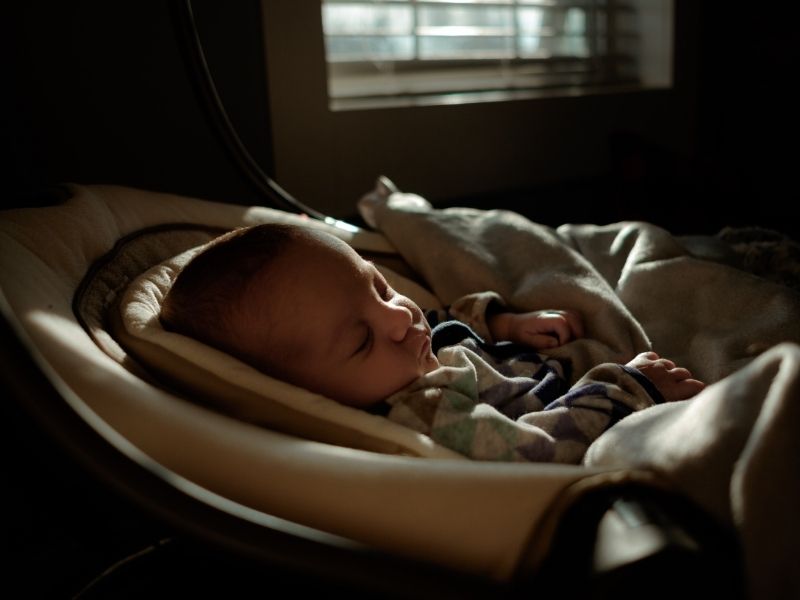It’s the brutal truth of first-time parenting. The lack of sleep is real. Multiple feedings throughout the night, the unexpected 3am cries for milk, diaper changes, and more; challenges that no one is truly prepared for. Inconsistent sleeping patterns are detrimental to both parents and their children. Frequent night wakings have been linked to dips in productivity levels among adults and shorter attention spans for toddlers.
Thankfully, there are many proven ways you can try when sleep training your baby. Like most things in life, the key to establishing a steady routine is to make a habit out of it. Here are some practical do’s and don’ts to help your baby catch some needed zzz’s, which also means you get to rest.
What You Should Do When Sleep Training Your Baby
Choose The Right Timing

There isn’t a perfect moment to start sleep training your baby. However, avoid scheduling it during a major event (moving house, a new nanny, a different bedroom) to minimise any external stressors that could disrupt their sleep. Use a calendar to mark out these events to avoid any clashes ahead of time.
Our suggestion: Start on a Friday or at the beginning of a break so you don’t have to worry about sleep deprivation during work and can fully focus on your baby.
Stick To A Consistent Routine

Consistency is imperative to creating long-lasting habits; the same applies when sleep training your baby. Create a routine of waking up at the same time every day by positioning their crib near the window, letting the sun peep through the curtains in the mornings. Do the same during nap times by putting them to sleep with the blinds up. What this does is that the natural light helps to regulate your little one’s circadian rhythm, allowing them to distinguish between day and night.
At night, stick to simple bedtime routines that don’t overstimulate your baby. A simple lullaby, a calming bath, reading a storybook, or snuggling them under their favourite blankies might do the trick. This may require some experimentation as not all babies are keen on the same rituals.
Keep A Sleep Log

As with business, it’s good to collect data on your precious one’s sleep habits so you can take action based on your findings. Use a notebook or go digital with an Excel sheet to log down your baby’s sleeping patterns. Be mindful of wake times, nap times, nap lengths, and bedtime, using label stickers to mark them for ease of reference. With information jotted down, you can help determine if your baby is sleep-deprived or if there are discrepancies between naps and night in as little as two weeks.
Try The Check And Console Method

Also known as “Ferberisation”, sleep training your baby with this method means putting them down awake and checking on them at progressively longer intervals. During checks, instead of picking them up, gently soothe and assure them verbally, or with a few quick pats for several minutes.
To help your baby ease into this method, prep the environment with a cosy, nursery-like atmosphere. The room should be cute and colourful with a warm vibe to match. You can install a night-light or plaster glow-in-the-dark stars on the wall to illuminate the room when night falls. Additionally, install an air-conditioner so your baby can sleep soundly without breaking a sweat.
For naps, this method works well too. But remember to drop by during shorter intervals so your baby won’t be napping longer than they should.
Try The Pick-Up-Put-Down Method

As tried and tested as the Ferber method, the Pick-Up-Put-Down (PUPD) is a gentle baby sleep training method that does literally what it implies. You pick them up when they’re struggling to fall asleep at night or during naps, and comfort them until they’re calm and drowsy. Then, you put them back in their crib to sleep, repeating this cycle until your baby is soundly asleep.
To ensure a smoother transition to slumber, dress your baby in comfortable clothing and have a portable Bluetooth speaker to play calming lullabies. If you ever need to be away from them for longer periods of time, consider placing a nanny cam to keep an eye on their movements.
What You Shouldn’t Do When Sleep Training Your Baby
Don’t Try Sleep Training Too Early

In general, most paediatricians recommend sleep training your baby when they’re about 4.5 to 5.5 months old. In most cases, babies around this age can make it to six to eight hours of sleep without needing to wake up.
Of course, not one baby is the same. Some may not be ready for sleep training until they’re a bit older while others can sleep seven hours or longer at an early age. Take the time to understand your baby’s whims and quirks and if needed, consult a professional for advice.
Don’t Be Inconsistent In Your Approach

As we have said before, consistency and perseverance are the two main components of a successful baby sleep training routine. Thus, you should stay committed to a schedule for at least two weeks before making any changes. As you implement the sleep training method of your choice, be mindful of how you respond to your baby because they can recognise physical and verbal cues. This prevents mixed signals that will undo the progress you’ve made.
When days are hectic, utilise the tools at your disposal to stay on top of things. For example, you could use a digital clock that gently wakes you and your baby at the break of dawn every day.
Don’t Have High Expectations

We’ll be upfront. Sleep training your baby will be challenging. As much as this is about developing a sleep schedule for them, this is also a test of your patience because your baby might adapt to your routine in three days or… three weeks.
And that’s perfectly alright! Draft a realistic timeline before you start and make room for any adjustments. Remember that success is relative and looks different for everybody. If your baby struggles with naps but falls asleep unassisted at night, that’s good progress!
When the going gets tough, be kind to yourself and consider practising some self-care. Use aromatherapy fragrances to instil a sense of calmness in your surroundings or an invigorating massage session can also do no wrong.
Sleep Training Your Baby Can Be Challenging, But It’s Rewarding

Teaching a baby how to sleep and nap well is a crucial part of the parenting experience. While it poses its own set of challenges and struggles, the rewards will be worth it, simply because both you and your baby will spend more time in dreamland!
We hope this list of practical strategies will help you ease into your baby’s new sleeping routine better. In the days ahead, your baby will continue to grow and develop skills that will delight you. Here’s what you need to know about their growth in the first year.

